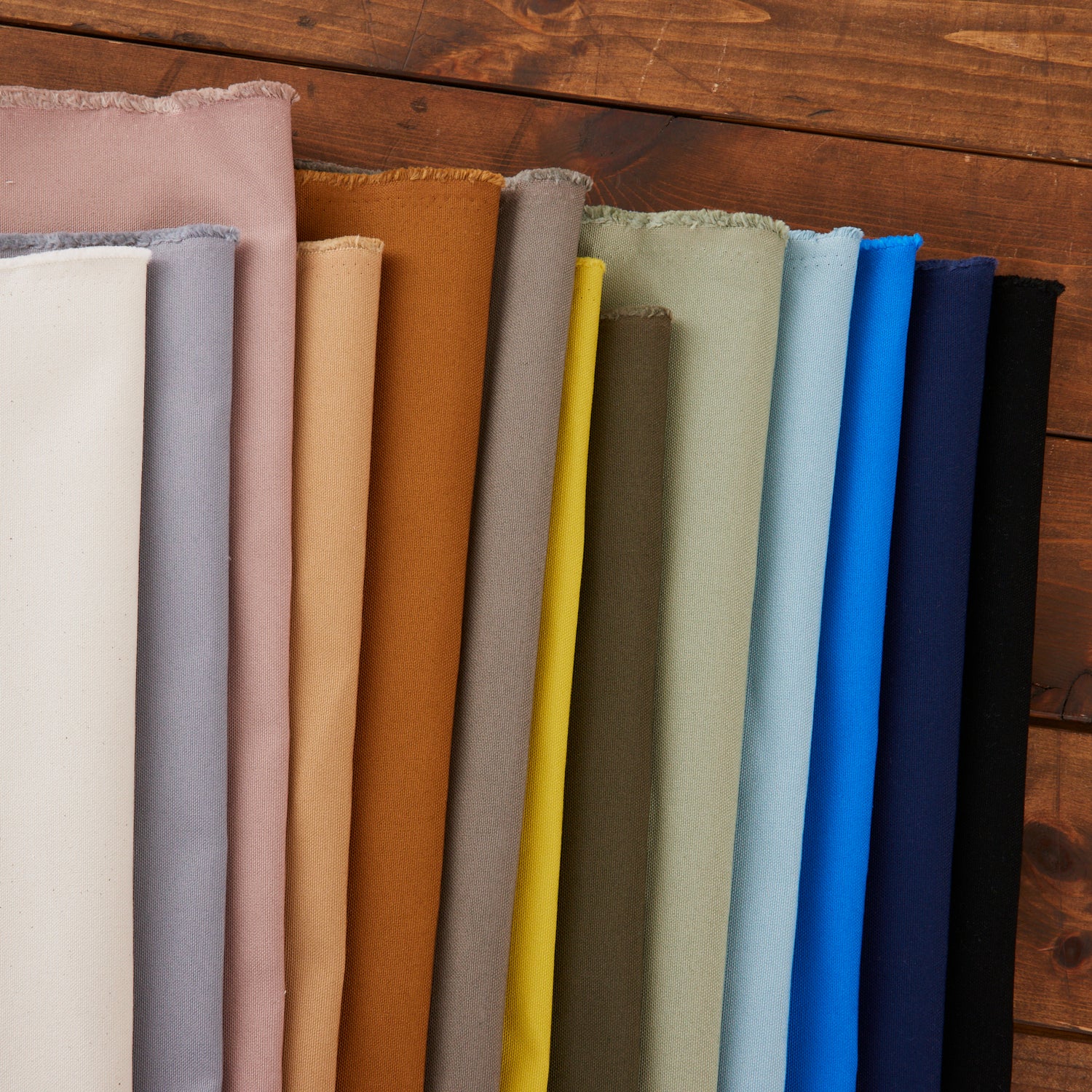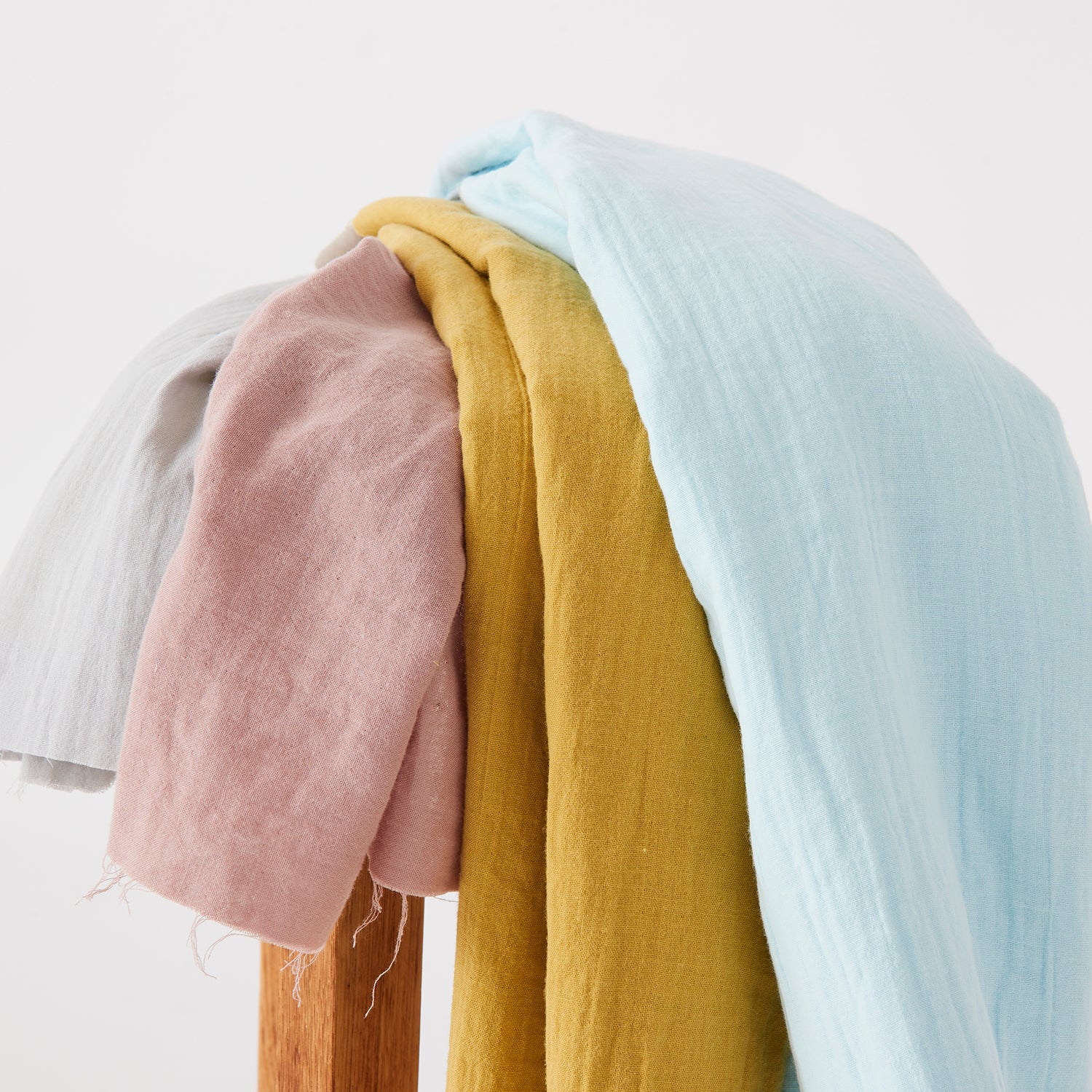Where are KOKKA's Fabrics Produced?
You may know that most of the fabrics at KOKKA are woven, dyed, and finished all in Japan, but have you ever wondered how exactly our textiles are produced? Before your favorite textiles arrive to be sold on Kokka Fabrics, they go through a long process made possible by our network of textile professionals who have been working in the Japanese fabric production industry for decades.
We visited the dyeing plant of these trusted partners, Kurokawa Daitou, who is responsible for dyeing many of our fabrics at KOKKA. We’ve been working with Kurokawa Daitou for around 30 years, and their knowledge and experience in the Japanese fabric dyeing industry is unmatched.

Setting the Standard in the Japanese Fabric Dyeing Industry
Kurokawa Daitou was founded in 1920 in Kyoto, celebrating their 100th anniversary of their establishment in 2020. While Kurokawa Daitou are committed to keeping traditional dyeing techniques alive, they also are also a company that understands the importance of keeping up with the constantly changing industry standards.

What is OEKO-TEX?
For the past 10 years, the techniques and dyeing agents used by Kurokawa Daitou have passed the OEKO-TEX certification board’s rigorous testing with flying colors.
OEKO-TEX is an internationally recognized certification that ensures that all products with their label have been tested to make certain that all fibers and other components of the products use no toxic or harmful chemicals in the production process. The team at Kurokawa Daitou prioritise the safety of the final user before any else, always keeping in mind that the fabrics they dye will come into direct contact with human skin. You can read more about the OEKO-TEX certification on their official website here.

Kurokawa Daitou are also a company officially recognized by J∞QUALITY, a quality-check body ran by the Japan Apparel Fashion Industry Council, that ensures that its certified partner brands and factories’ production lines (from fiber weaving to the final planning and sales) is done entirely in Japan.

In order to ensure that Kurokawa Daitou keeps their OEKO-TEX certification, all of their staff receive vigorous training and in-depth education about organic cotton and safe dyeing procedures. As the start-to-finish process of obtaining this certification is so strict, not many textile-related factories in Japan are accredited with these internationally recognized certifications.
Color Creation with Kurokawa Daitou and KOKKA
As mentioned above, KOKKA has been working with Kurokawa Daitou for over 30 years to produce the beautiful colors you see in our printed fabric. One of the main characteristics of KOKKA fabrics is the deepness of the color, which is made possible by the Kurokawa Daitou technicians’ eye for detail.

Making KOKKA 100% Organic Cotton
Let’s see what happens to the fabrics in our 100% Organic Cotton series once they dyed by the technicians at Kurokawa Daitou.

All fabric made from organic cotton is marked with this flag to ensure that the correct practices are followed when actually processing the fabric.

The fabric is washed while it’s still in long cuts. All organic cotton products are processed in a separate machine from regular fabric, to ensure that there is no cross contamination.

During the final stages of washing the fabric, large amounts of water are drained from the fabric.

The fabric is cut into smaller pieces, and then ironed to dry it out.

After the drying process is completed, the fabric is checked against samples to make sure the color has successfully been recreated.

Once the color of the fabric has been thoroughly checked, the fabric goes through another process to make sure the back and front of the fabric match.

After the fabric has been dyed, washed, checked, finished, and checked once more, it’s ready to be sent back to the KOKKA warehouse to be shipped out to all of our customers!

None of the fabrics you see at Kokka Fabrics would exist if it weren’t for our skilled and dedicated partners in the Japanese textile industry, and we would like to thank them for all of the hard work that they do.
We hope you enjoyed our trip to the Kurokawa Daitou dyeing plant and we hope that we can show you more of our production process in the future.






















